Aging is a wild ride, isn’t it? One minute you’re scarfing down pizza rolls at 2 a.m. without a care in the world, and the next you’re reading food labels like they’re ancient scrolls predicting your cholesterol future.
Welcome to adulthood, where your body politely (and sometimes not-so-politely) lets you know that it has zero tolerance for your bad dietary decisions.
The truth is, as we age, our metabolism slows down, our bones get a little more fragile, and our hearts and brains need a bit more TLC. That doesn’t mean you have to live on steamed broccoli and disappointment—but it does mean making smarter choices at mealtime.
So, before you reach for that mystery meat sandwich or crack open a third energy drink, let’s talk food. More specifically—12 foods to kick to the curb as you age, and 12 that totally deserve a spot on your plate.
1. Processed Meats

When you think of your favorite breakfast or quick lunch fix, processed meats often come to mind. Bacon, sausages, and deli cuts are irresistible yet notorious for being loaded with sodium, nitrates, and preservatives. These additives are linked to increased risks of heart disease and certain cancers.
As our bodies age, they become less efficient at processing these harmful substances, leading to negative health impacts. Instead of reaching for a quick-fix sandwich, consider leaner protein options or plant-based alternatives to support your heart health.
Choosing fresh, minimally processed meat or vegetarian options not only lowers health risks but also adds variety to your meals. Think grilled chicken or turkey breast, or even a hearty chickpea salad. These choices help maintain vitality while reducing exposure to harmful additives.
2. Sugary Beverages

Sipping on sugary drinks like soda and sweetened teas might remind you of summer picnics and carefree days. However, these beverages are not kind to aging bodies. They cause blood sugar spikes and promote insulin resistance, which can contribute to belly fat and type 2 diabetes.
For those who can’t resist a sweet drink, try transitioning to naturally flavored water or herbal teas. These alternatives provide hydration without the sugar crash. As you age, maintaining stable blood sugar levels becomes crucial for overall health.
Consider experimenting with infusions like cucumber-mint or lemon-ginger for a refreshing twist. Ditching sugary beverages can be a delightful journey of discovering new flavors while supporting your body’s changing needs.
3. White Bread

White bread is often a staple in many households due to its soft texture and quick availability. Yet, it’s highly refined and lacks substantial fiber, causing rapid blood sugar spikes and offering little nutritional value.
Opting for whole grain or multigrain bread can make a significant difference as you age. These options are packed with fiber, aiding digestion and keeping you fuller longer. They also help in stabilizing blood sugar levels.
Replacing white bread with its whole grain counterpart can be a small but impactful change. Enjoy it toasted with avocado or as a hearty sandwich base, nourishing both your taste buds and your well-being.
4. Fried Foods

The allure of fried foods—crispy french fries and tender fried chicken—is undeniable. However, these comfort foods are filled with trans fats that can clog arteries and promote inflammation, particularly harmful as we age.
Consider the delicious alternatives that baking or grilling offers. These methods retain flavor while reducing unhealthy fats. Swapping out fried for baked sweet potato fries or grilled chicken can be both satisfying and heart-friendly.
As you grow older, it’s crucial to adopt cooking styles that support long-term health. You’ll discover that flavor doesn’t have to be sacrificed for nutrition.
5. Pastries and Baked Goods

The temptation of pastries—doughnuts, muffins, and store-bought cookies—can be hard to resist, especially with their sweet allure during morning coffee. Yet, they are essentially sugar bombs that lead to weight gain and unstable blood sugar levels.
Exploring healthier baking options or enjoying sweets in moderation can be a more sustainable approach. Consider treats made with natural sweeteners or whole-grain flours, which are kinder to your body.
As you age, being mindful about sugar intake becomes vital. Satisfy your sweet tooth with fresh fruit or a small piece of dark chocolate, allowing yourself to enjoy life while maintaining balance.
6. High-Sodium Frozen Meals
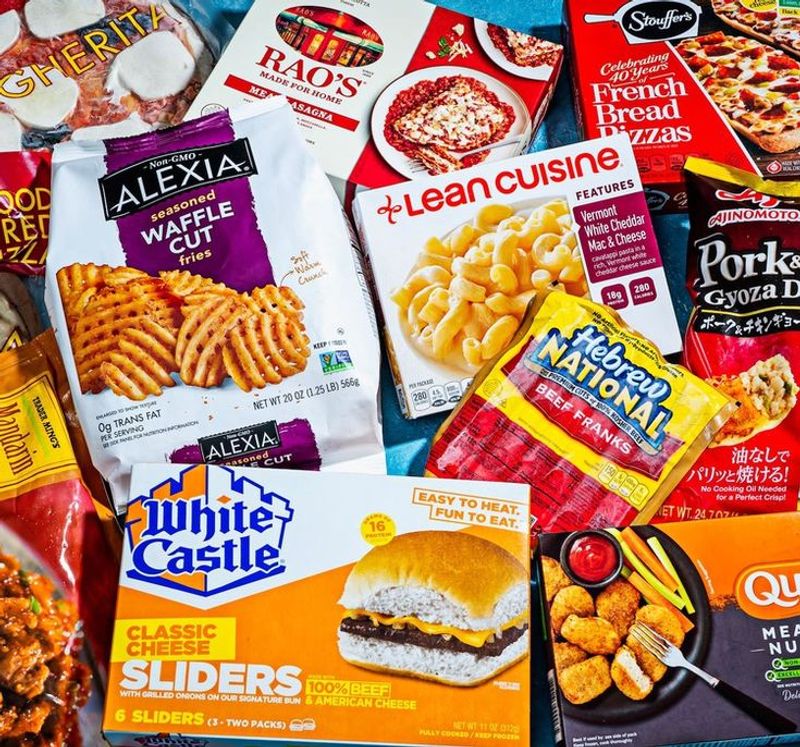
The convenience of high-sodium frozen meals can be appealing for busy days. However, these pre-packaged options are notorious for being sodium-packed, which can spike blood pressure and strain your heart.
Exploring meal prepping or choosing low-sodium alternatives can be beneficial as you age. Preparing meals at home allows you to control ingredients and reduce sodium intake.
Consider cooking extra portions of your favorite dishes and freezing them for later. This approach offers both convenience and health benefits, supporting your heart and overall well-being.
7. Alcohol (in excess)

A glass of wine or a cocktail can be a delightful way to unwind. However, excessive alcohol consumption can impair liver function, disrupt sleep, and accelerate cognitive decline, especially as you age.
Finding a balance with alcohol is key. Enjoying it in moderation, or choosing alcohol-free days, supports both your liver and mental clarity. Consider exploring non-alcoholic beverages that still offer a social or relaxing experience.
Mocktails, infused waters, or a simple sparkling water with a splash of lime can be refreshing alternatives. Prioritizing moderation ensures that you enjoy life’s moments without compromising your health.
8. Candy

Candies might be the ultimate sweet indulgence, but they’re nothing more than empty calories and pure sugar. Indulging in them leads to tooth decay and unstable blood sugar levels, offering no real nutritional benefit.
As you grow older, it’s beneficial to limit candy consumption and focus on more nourishing snacks. Fresh fruit, nuts, or yogurt can satisfy sweet cravings while providing essential nutrients.
Experiment with healthy snack recipes or simply enjoy the natural sweetness of fruits. This shift not only benefits your health but can also introduce exciting flavors and textures to your diet.
9. Energy Drinks

Energy drinks might promise a quick boost, but they’re packed with caffeine and sugar, which can overstimulate your heart. The resulting energy crash is less than ideal, particularly when you’re over 40.
Opting for natural energy sources like green tea or smoothies can provide a more balanced lift. They offer antioxidants and nutrients that support overall vitality without the crash.
As you age, focusing on sustainable energy boosters promotes long-term health. Embrace options like a brisk walk or staying hydrated, which naturally invigorate your body and mind.
10. Processed Cheese

Processed cheese might be a childhood staple, but it’s far from a nutritional powerhouse. Often described as salty plastic, it’s low in nutrients and high in preservatives that offer little benefit.
Exploring natural cheese options like feta, mozzarella, or cottage cheese can provide the taste you love along with valuable nutrients. These cheeses are rich in calcium and protein, supporting bone health as you age.
Incorporating natural cheese in moderation elevates your meals while nourishing your body. Pair it with fresh veggies or whole-grain bread, turning a simple snack into a delightful and nutritious experience.
11. Margarine (with trans fats)
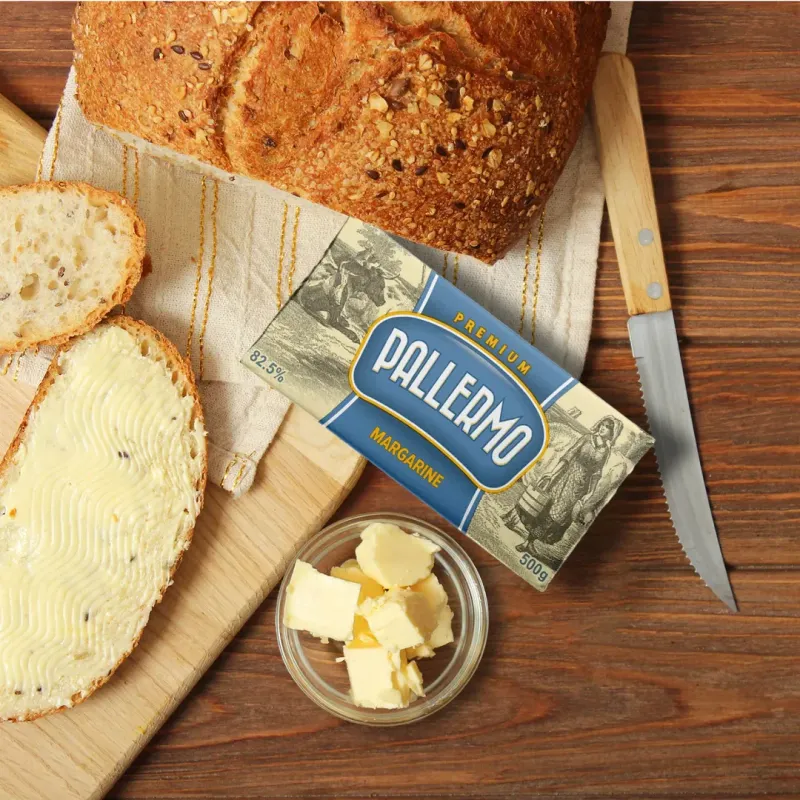
Margarine once held the spotlight as a healthy alternative to butter, but many brands still hide trans fats within. These hidden fats pose a heart health hazard, particularly concerning as we age.
Choosing spreads that are free from trans fats helps protect your heart. Opt for options like olive oil or avocado spread, which offer healthy fats and enhance flavor.
Embracing these alternatives supports cardiovascular health and culinary creativity. Drizzle olive oil on salads or toast, and enjoy the rich taste that complements a heart-healthy lifestyle.
12. Fast Food Burgers

Fast food burgers may be a quick fix, but they’re loaded with saturated fat, sodium, and questionable additives. These can strain your heart, joints, and waistline, especially as you get older.
Exploring homemade burger recipes allows you to savor the flavors without the health risks. Use lean meats or plant-based patties, and load up on fresh veggies to nourish your body.
Cooking at home invites creativity and control over ingredients, making your meals both satisfying and health-conscious. Relish the opportunity to enjoy burgers that support your well-being.
1. Fatty Fish (like salmon)
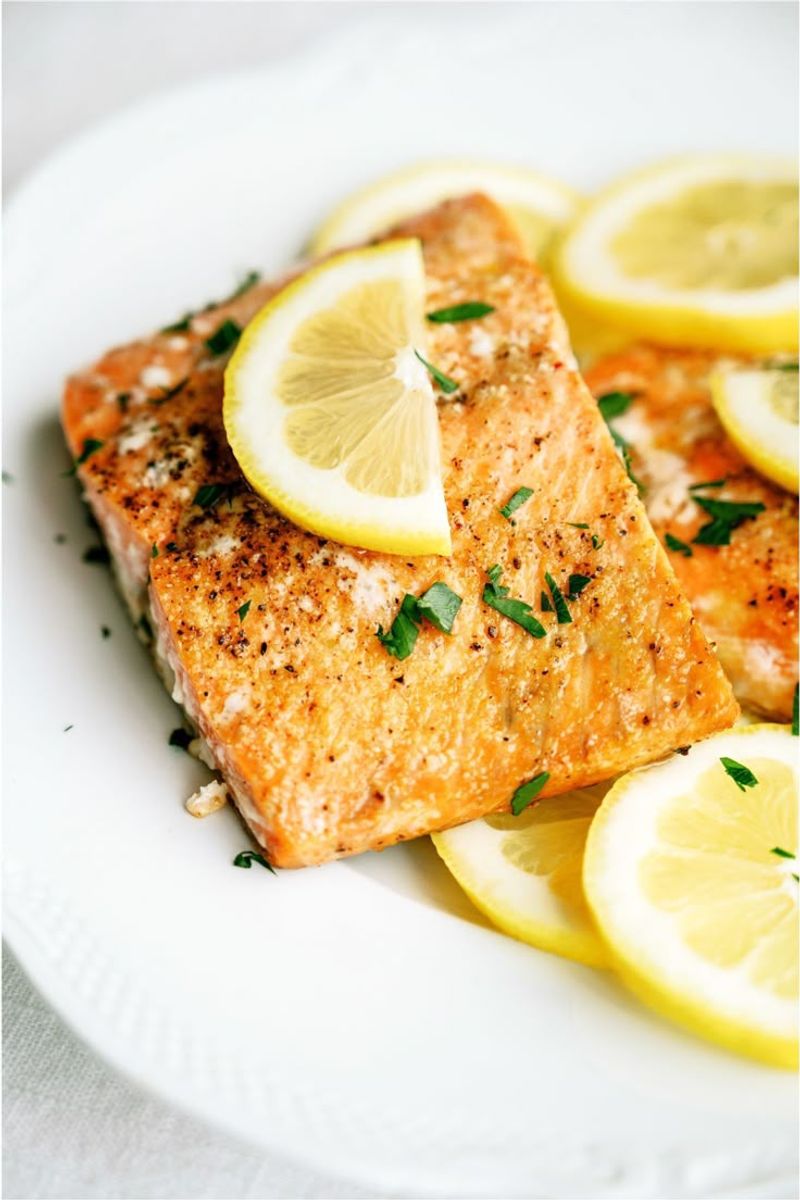
Salmon and other fatty fish are more than just a dinner delight; they are rich in omega-3s, which fight inflammation and boost brain health. These beneficial fats are instrumental in keeping your heart happy and your mind sharp.
Including fatty fish in your diet a couple of times a week can lead to noticeable health improvements. Pairing it with fresh vegetables or a quinoa salad enhances both flavor and nutritional value.
As you age, prioritizing omega-3 intake can support cognitive and cardiovascular health. Enjoy these delicious fish options baked, grilled, or poached for a heart-friendly meal.
2. Oats
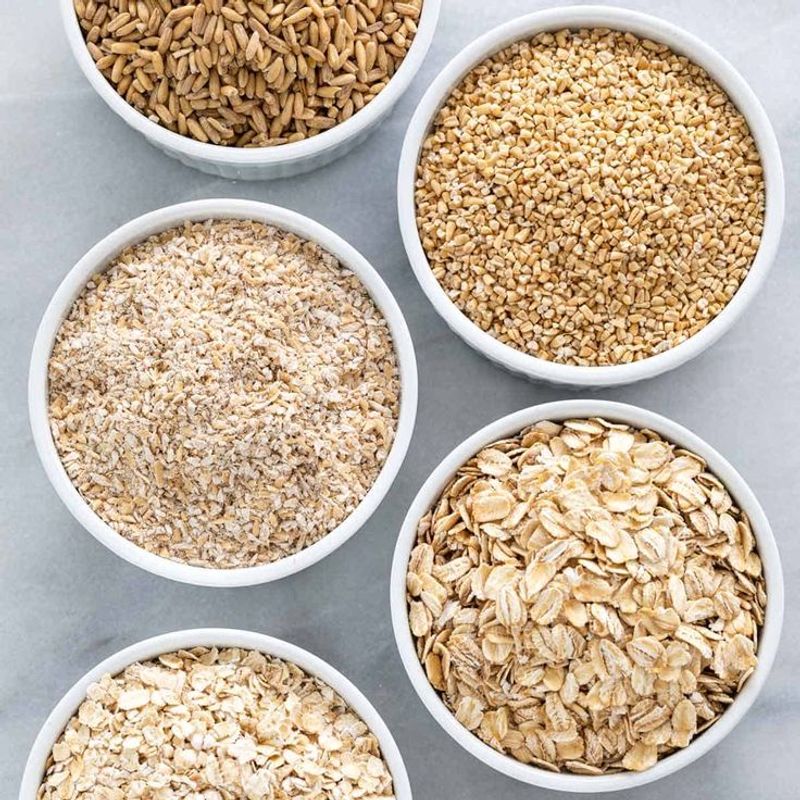
Oats are a breakfast staple that offers more than just comfort. High in soluble fiber, they help regulate cholesterol and stabilize blood sugar, keeping you feeling full and energized throughout the day.
As you get older, incorporating oats into your morning routine can support digestive health and heart function. Enjoy them as warm porridge or overnight oats with fruits and nuts for added nutrition.
This versatile grain fits seamlessly into various recipes, making it a simple yet powerful addition to your diet. Embrace the heart-healthy benefits of oats in creative ways, from smoothies to baked goods.
3. Berries
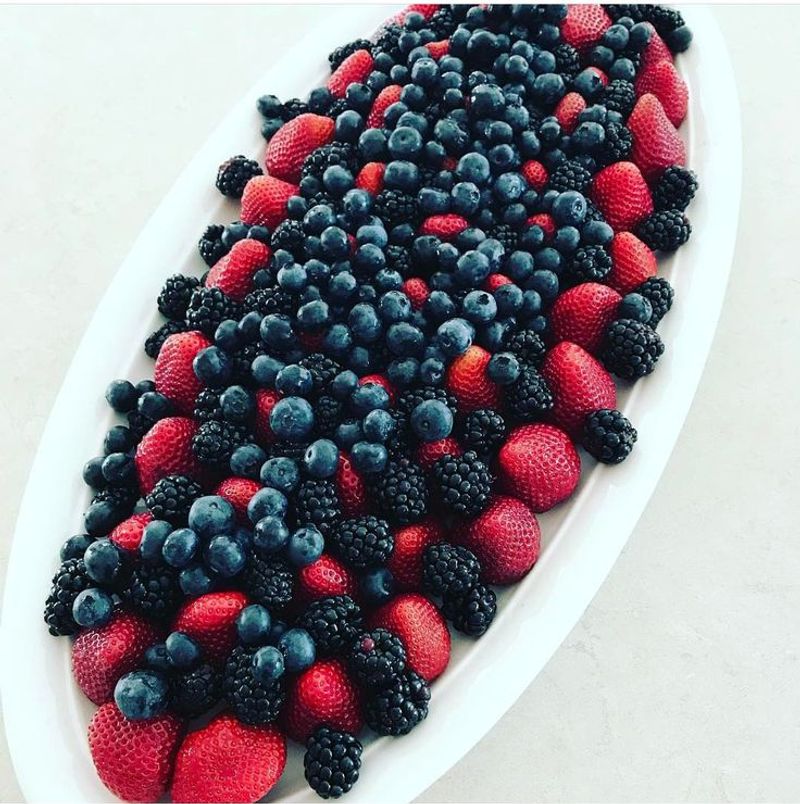
Berries are nature’s candy, bursting with antioxidants and flavor. They combat free radicals and improve brain function, making them an excellent choice as you age.
Adding a handful of berries to your daily diet can significantly enhance cognitive health. Whether in smoothies, salads, or as a snack, these vibrant fruits offer both taste and nutrition.
Berries’ rich colors and sweet-tart profiles make them a favorite among health enthusiasts. Enjoy their benefits and discover the joy of eating fruits that are both delicious and beneficial for your mind and body.
4. Leafy Greens
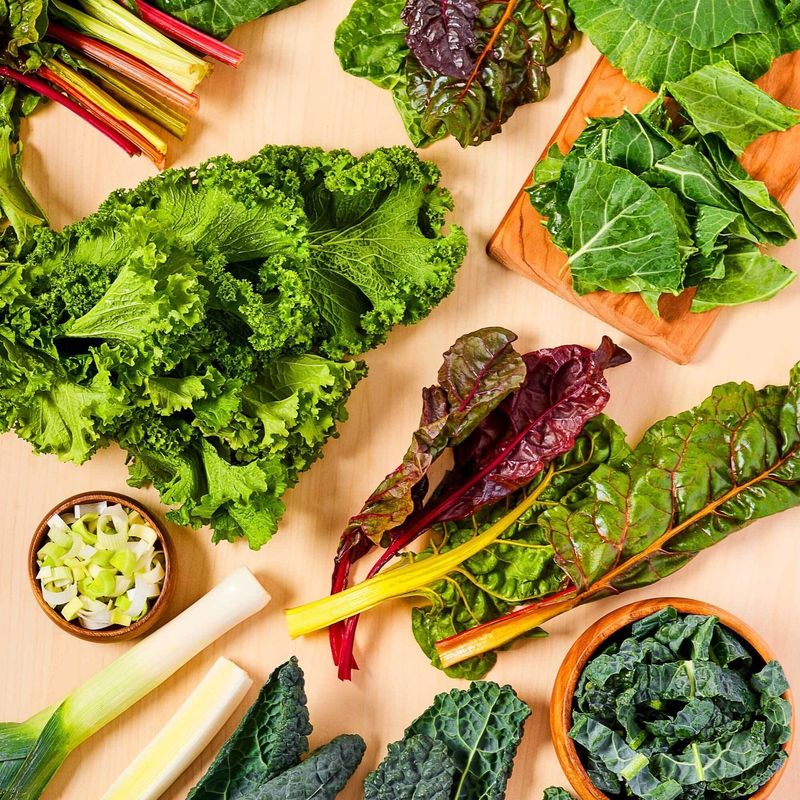
Leafy greens such as spinach, kale, and collards are packed with vitamins K, A, and folate, essential for maintaining strong bones, healthy eyes, and a sharp mind.
Incorporating these greens into your diet supports overall health and aging gracefully. Whether in salads, smoothies, or sautés, their versatility is unmatched.
For those looking to boost nutrient intake, leafy greens provide an easy and delicious solution. Their bright flavors and vibrant colors make every meal a culinary delight, enhancing both taste and well-being.
5. Greek Yogurt
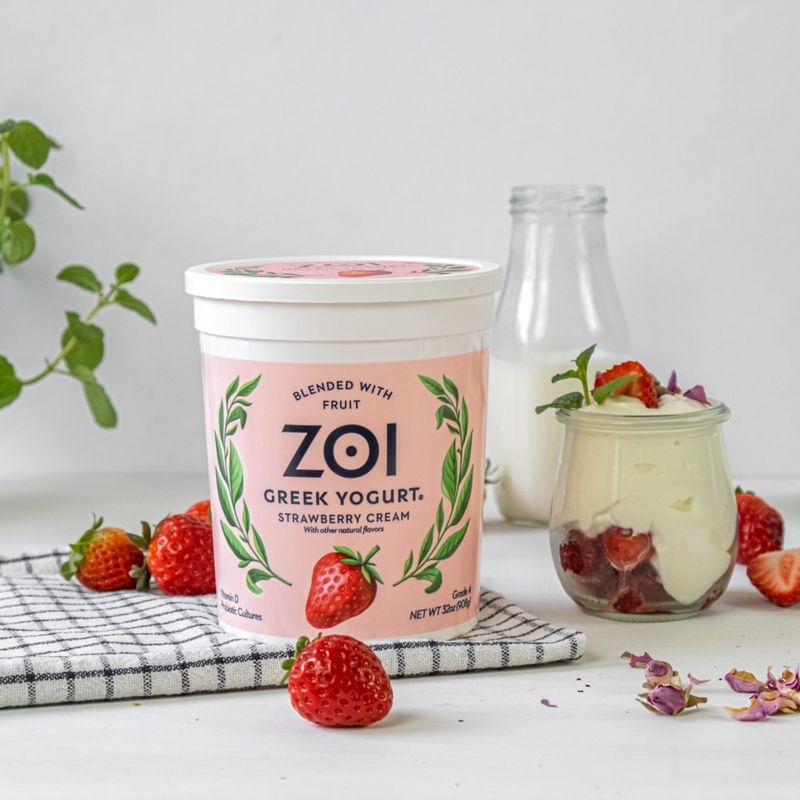
Greek yogurt is a creamy delight, packed with protein and probiotics beneficial for muscle maintenance and gut health. Its rich texture and tangy flavor make it a versatile companion in both sweet and savory dishes.
As you age, maintaining muscle mass and digestive health becomes increasingly important. Incorporating Greek yogurt into your diet can aid in achieving these goals.
Enjoy it with fresh fruit, in smoothies, or as a base for dressings and dips. Its adaptability makes it a favorite among those seeking both taste and nutrition in their daily meals.
6. Avocados
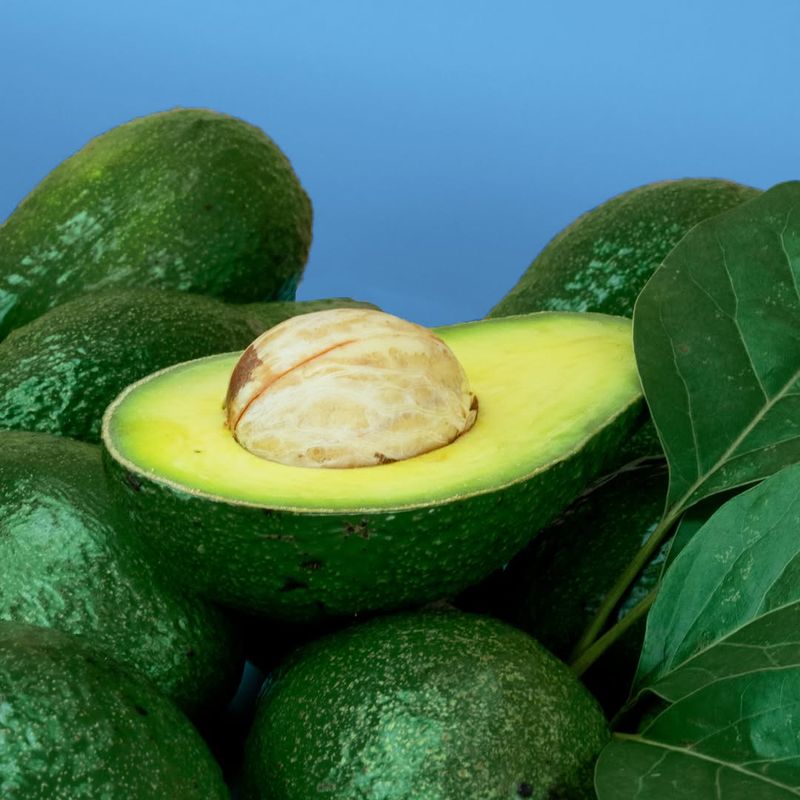
Avocados are more than just trendy toast toppers. They are full of healthy fats and potassium, supporting heart health and keeping your skin youthful and glowing.
Their creamy texture and subtle flavor complement a wide range of dishes. Adding avocados to salads, sandwiches, or smoothies can enhance both taste and nutritional content.
As you age, incorporating avocados into your diet promotes heart health and adds a touch of indulgence to everyday meals. Relish the luxurious taste and the numerous benefits these versatile fruits offer.
7. Nuts (especially almonds & walnuts)
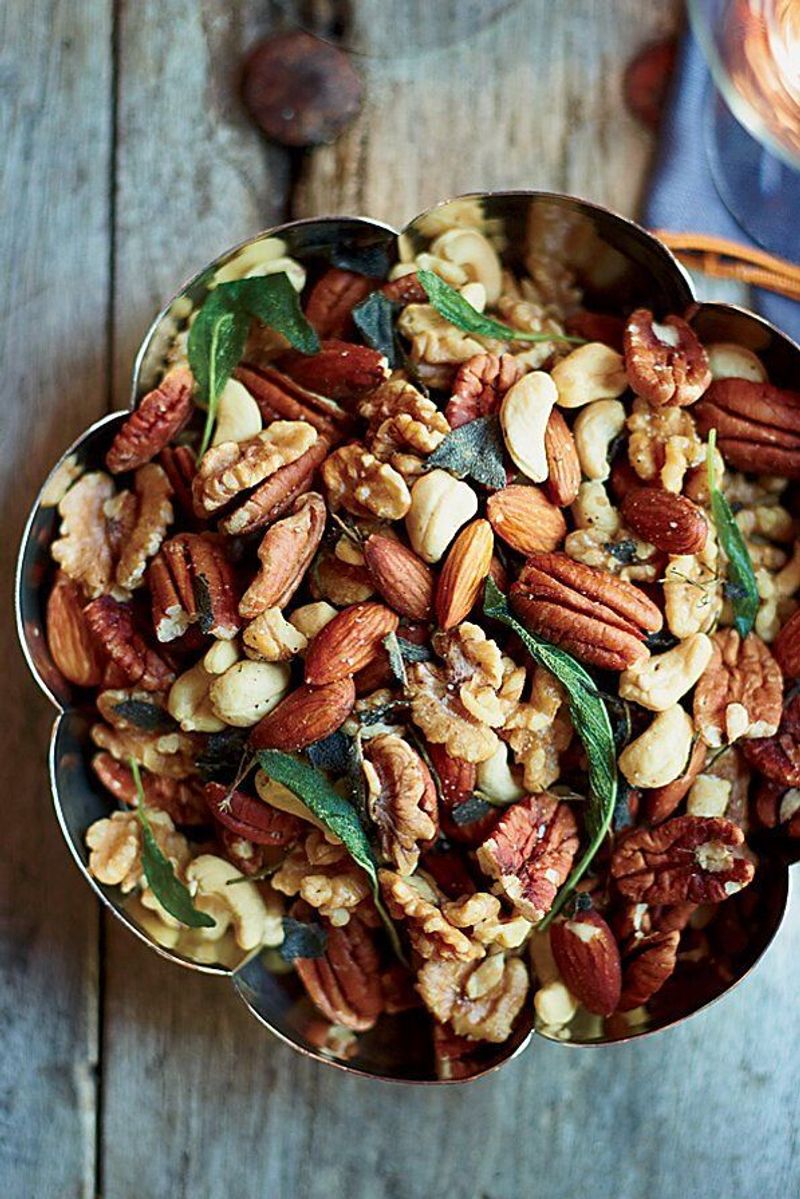
Nuts, particularly almonds and walnuts, are tiny powerhouses of heart-friendly fats, protein, fiber, and anti-inflammatory compounds. Their crunch and rich flavor make them a delightful snack or addition to dishes.
Incorporating nuts into your diet supports heart health and provides essential nutrients that aid in aging gracefully. Enjoy them as snacks, in salads, or as a topping for yogurt and oatmeal.
Their versatility and nutritional profiles make nuts a favorite among those seeking to enhance their diet. Embrace the heart-healthy goodness of nuts and experience their satisfying crunch every day.
8. Sweet Potatoes

Sweet potatoes are more than just a side dish; they are nutrition-packed powerhouses. Their low glycemic index, fiber, and beta-carotene content make them great for vision, digestion, and blood sugar balance.
Including sweet potatoes in your meals supports health and adds a sweet, earthy flavor to your dishes. Whether roasted, mashed, or baked, they provide both taste and nutrition.
As you age, opting for nutrient-dense foods like sweet potatoes can enhance your diet and overall well-being. Enjoy their natural sweetness and vibrant color, which make every meal a visual and culinary feast.
9. Beans and Lentils

Beans and lentils are the unsung heroes of the pantry, offering a wealth of fiber, protein, and iron. They keep digestion smooth and muscles strong, making them a valuable addition to any diet.
Integrating these legumes into your meals supports heart health and provides sustained energy. Enjoy them in soups, stews, or as a salad topping for both flavor and nutrition.
Their versatility and nutritional benefits make beans and lentils a must-have for those looking to age gracefully. Explore the endless recipes and savor the wholesome goodness they bring to your table.
10. Olive Oil
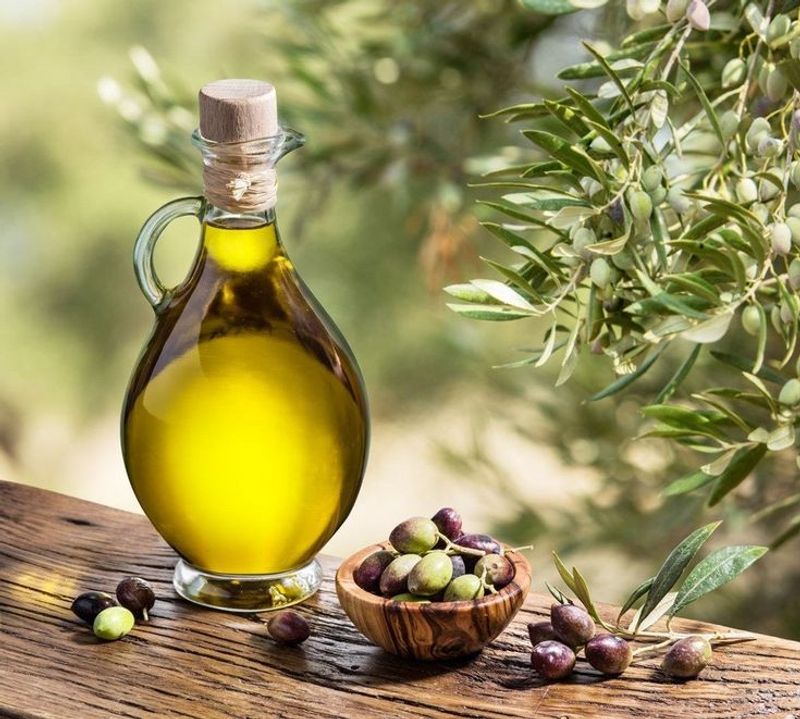
Olive oil is a kitchen staple renowned for its monounsaturated fats and antioxidants. Swapping it in for butter or other oils can be a simple yet impactful way to support heart and brain health.
Drizzling olive oil on salads or using it in cooking elevates both taste and nutritional value. Its rich, fruity flavor enhances dishes and adds a touch of Mediterranean flair.
As you age, incorporating olive oil into your diet promotes overall wellness. Embrace the smooth richness it offers, and enjoy the health benefits that come with each delicious drop.
11. Turmeric

Turmeric is more than just a spice; it’s a golden powerhouse of anti-inflammatory and antioxidant properties. Its vibrant hue and warm flavor can elevate dishes while supporting joint and cognitive health.
Incorporating turmeric into your meals can enhance both taste and well-being as you age. Enjoy it in curries, teas, or as a seasoning for roasted vegetables.
As you explore its uses, you’ll find that turmeric adds both color and health benefits to your culinary creations. It’s a simple way to spice up your diet and support long-term health.
12. Green Tea

Green tea is revered not only for its soothing qualities but also for its metabolism-boosting and anti-aging benefits. Packed with polyphenols, it protects the brain and promotes longevity.
Sipping on green tea regularly can enhance cognitive function and support weight management. Its delicate flavor and subtle aroma make it a refreshing choice for any time of day.
As you age, incorporating green tea into your routine can be a relaxing ritual with significant health benefits. Enjoy the calming effects and the vibrant energy it brings to your daily life.
Leave a comment